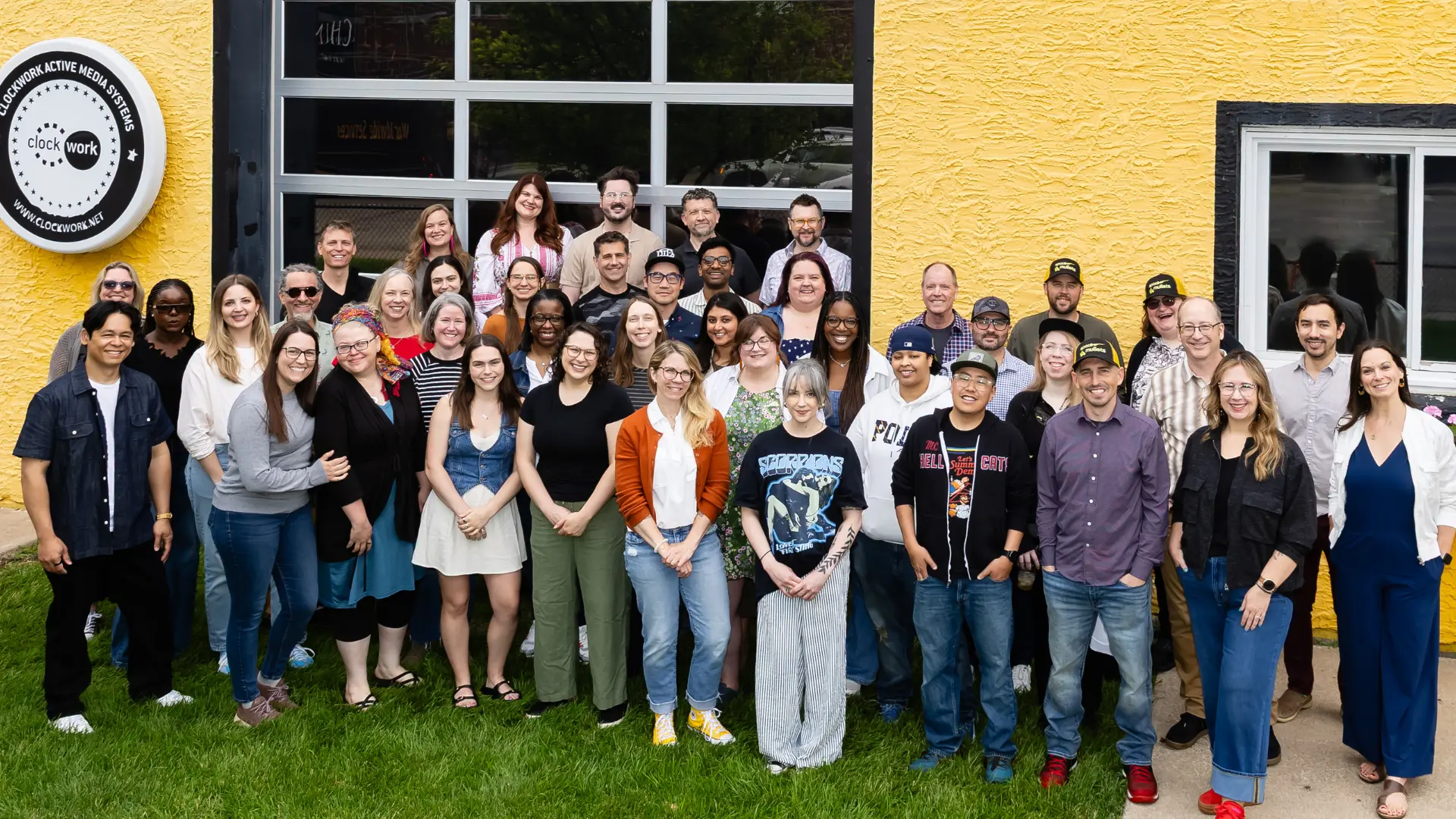A mentor once told me that all of my ideas about work culture were pointless unless I had the numbers to back them up. He went on to emphasize again what most business owners and leaders trumpet — the best definition of success is in the numbers. I agreed with him, of course. I still do. But I remember asking him: what does success look like to you?
In January of 2002 my friends, Michael Koppelman, Kurt Koppelman, Chuck Hermes, and I started a business together. It was the second go-round for me, Mike and Chuck, having tried our hand at sharing a vision and working together at our first joint adventure, Bitstream Underground.
Over a meal with Michael, we sketched out (on a napkin) our idea for a new company that included “software as a service” and a private version of what is now commonly known as “cloud services.” Our simple sketch was about technology, layered with thinking and creative. Basic, yet original. And that napkin was the beginning of our business plan.
When we talked about the kind of a company we wanted to build we all immediately agreed on two things: it would be values-based–in that we wanted to live our values of honesty, fairness, gratitude, and authenticity without pretense–and we were committed to building the kind of company where we all wanted to work. We created our own dream jobs. And we were convinced that by building that company and cultivating that particular culture we would attract the kind of talent we valued: people that pushed the boundaries of intellectual curiosity and made innovation an institutional standard.
Don’t get me wrong, we knew we’d be challenged by traditional rules of business simply because things had always been done a certain way, very different from our way. We expected to make mistakes and ruffle feathers, and possibly fail. But we agreed that it was pointless to be anything other than exactly who we were.
And so we started Clockwork. We called it a “start-over” instead of a “start-up.” We poured every lesson we’d ever learned–both good and bad–into this little start-over. We endured a less-than-glamorous beginning as we waited out our non-competes and tried to make a living. The thing that helped us most during our humble beginnings is the thing that continues to serve us now–we always understood that business is the product of relationships. And the best relationships are born out of trust and respect. Our first clients were those people with whom we’d already established those things.
Over the years, we’ve been fortunate to serve some fantastic clients and we’ve triumphed over what, at the time, seemed like insurmountable challenges. We didn’t do any of that alone. We’ve been privileged to work with some of the most amazing minds in the business. Many of those brilliant thinkers are still here, calling themselves “Clockworkers” and contributing to our truly rigorous work.
I’ve watched businesses like ours come and go. I’ve watched organizations shine lights on themselves and call attention to their mystical thinking. At the time, it made me wonder what we were doing wrong to make us seem less than mystical or not as glamorous. Still, we stayed steady and on course.
Our company–our services, software, and process–grew organically. Our solutions evolved as technology required it and users needed it. But most importantly, we stayed true to the ideals we shared from the very first day. We worked with good clients. We delivered good work. We invested in people and mutually trusting relationships, with partners, clients, and advisors.
Our band of technologists, creatives, and big thinkers got bigger and better. Like good companies do, we won awards for design and development. We won awards for being a good place to work and for being woman-owned and for being mostly healthy in terms of how we communicate and treat each other.
But you can’t win an award for the thing that mattered most. Somewhere in there, in the hard work, and the good people, and the crazy days, we discovered the definition of success: the feeling of real gratitude. We had jobs we loved to do and we got to share that experience with other Clockworkers. And, what’s more, the numbers backed it up.
Here we are, 10 years old and still going strong. It seems appropriate to celebrate how far we’ve come by planning for the future. And that’s exactly what we’re doing. We’re celebrating the work we do, the people we get to do it for, and the great people that call themselves Clockworkers.
Personally, I’m celebrating being able to work every day with people I love. I’m celebrating 10 years of a really successful partnership–10 years of getting to work with my friends, my comrades, my brothers. And I’m celebrating discovering that holy grail of business: success.
Happy Birthday, Clockwork.




